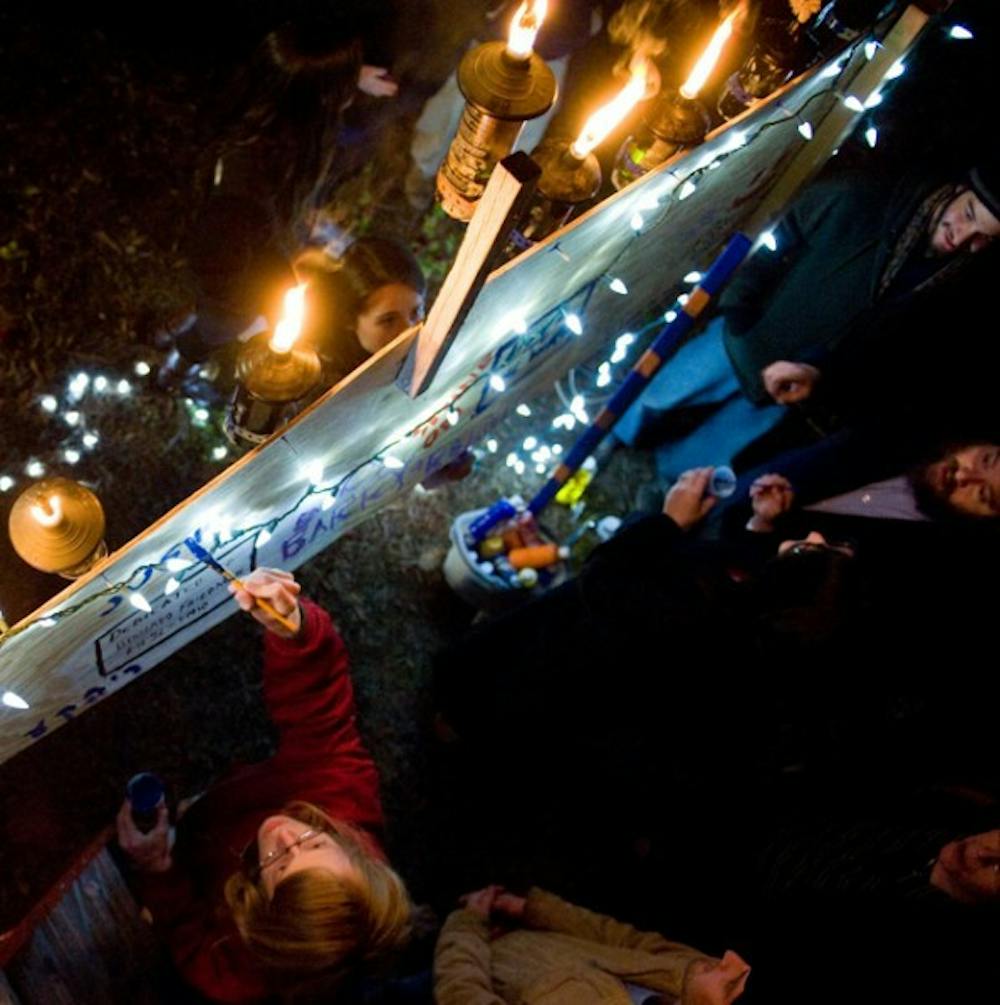This Hanukkah, Alexa Bieber will FaceTime into her family’s nightly menorah lighting from her dorm room.
Bieber, an 18-year-old UF psychology freshman, is one of about 6,500 Jewish students at UF.
UF delayed the start of the Fall semester from Aug. 24 to Aug. 31 to better prepare for the return of students amid the COVID-19 pandemic, UF spokesperson Steve Orlando said. When Jewish students like Bieber first heard the news, they didn’t realize the change meant final exams would fall directly over the holiday.
Due to the adjustment, final exams start Saturday and last until Dec. 18. Hanukkah began at sundown on Thursday and ends Dec. 18. The previous finals time was a week prior.
The Jewish holiday, also known as the Festival of Lights, is an eight-day celebration of the redecoration of the Holy Temple in Jerusalem. Celebrated with a nightly menorah candle lighting and prayers, Hanukkah falls on different dates every year because it’s determined by the Hebrew calendar.
When the decision was made, the university was aware of the overlap, Orlando said. The holiday was part of the reason the university encouraged faculty to adjust their classes to be fully online after Thanksgiving.
That way, students observing the holiday with their families could complete the semester from home, Orlando said, adding that he hoped Jewish students take advantage of the change.
The UF Lubavitch Chabad Jewish Student Center planned events between Dec. 10 and Dec. 16. UF Hillel will also host a Hanukkah Shabbat service Friday evening.
Bieber, who is from Weston, a South Florida city about five hours from Gainesville, said she chose to return to campus after Thanksgiving so she could concentrate on her four upcoming final exams. Bieber’s last exam isn’t until Wednesday.
“There would never even be thoughts of giving a final on Christmas,” she said.
Although her family is Jewish, they don’t usually observe other holidays, such as Shabbat, the biblical day of rest observed with a candle lighting, blessing and dinner. However, her family lights the menorah and prays together every night during Hanukkah.
To Bieber, the holiday is meaningful because it’s a time for togetherness and latkes — potato pancakes meant to symbolize the miracle of Hanukkah that occurred when a small quantity of oil in the Holy Temple burned for eight days.
“I wonder how much it’s going to feel like Hanukkah on campus,” Bieber said. “I feel like there’s a certain type of feeling, like a Hanukkah aesthetic, where it’s cold and all my friends are getting their presents and stuff like that. I don’t know if I’ll be feeling that here.”
Brandon Gerardi, a 19-year-old UF finance sophomore, also associates Hanukkah with being home and spending evenings with his family. In a regular year, he would cook dinner with his mother for the first few nights of the holiday.
Now, Gerardi plans to take his virtual exams from Gainesville to concentrate on his studies. With his last final Monday, he doesn’t believe he could return to his Delray Beach home until the fifth night of Hanukkah.
Gerardi said he hopes to turn the holiday into an opportunity to engage with other Jewish students who are still on campus. He plans to welcome students who aren’t involved with the Jewish community on campus during the holiday.
Hanukkah is a minor holiday in Judaism compared to Christmas in Christianity, he said. But on holidays of importance in the faith, like Rosh Hashanah and Yom Kippur, the university doesn’t cancel classes either. However, Gerardi said he can’t help but feel overlooked when his faith isn’t considered, especially
“In the shortest way, it just kind of sucks that that’s the way it is,” he said.






